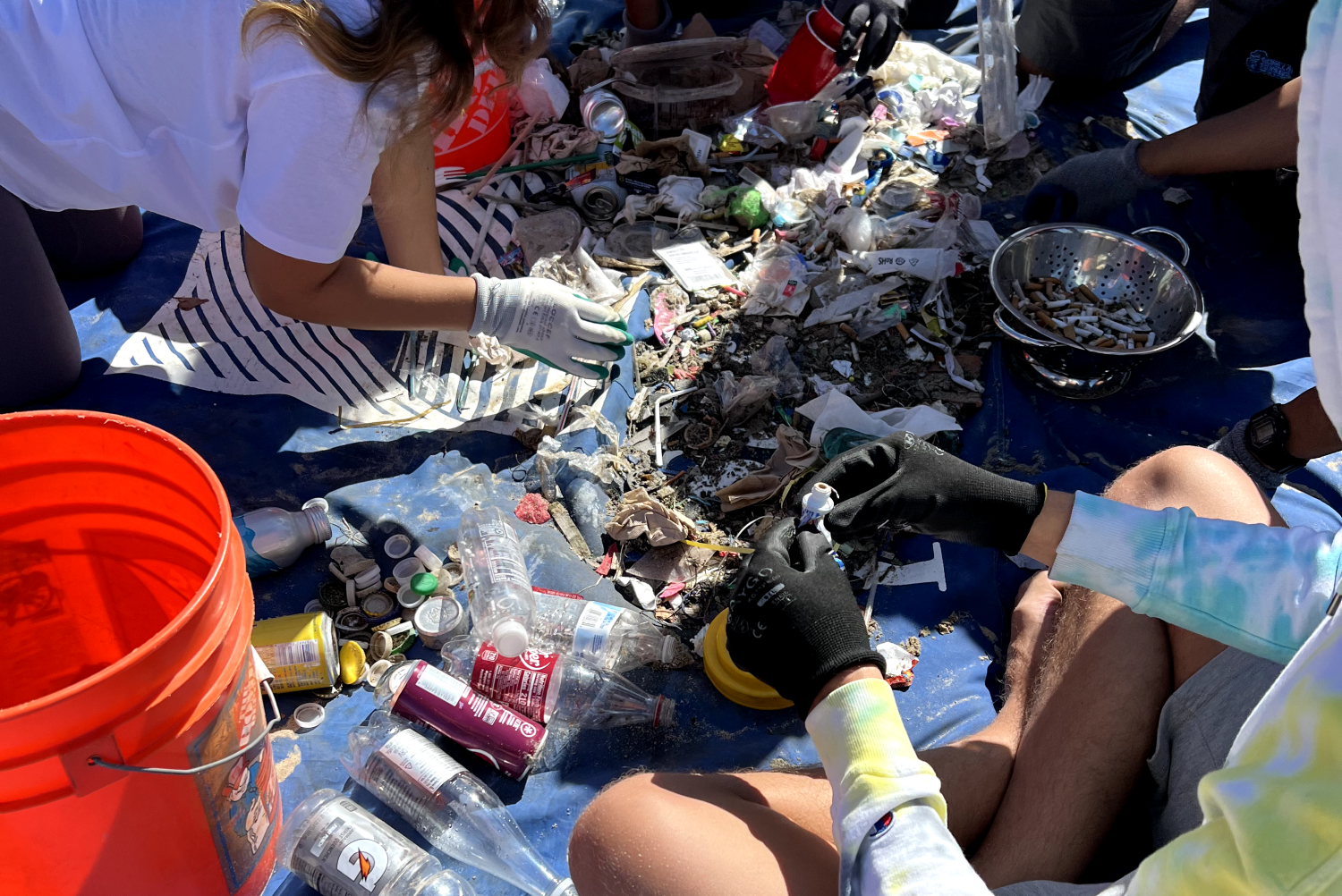Sustainable Practices To Add to Your Life
The cold, hard truth is that we have already done harmful levels of damage to our planet. If we continue mindlessly using and wasting the way we have made a habit of, the planet will one day become an inhospitable place to live for humans, animals, and plant life. Experts predict that we will cross an irreversible threshold as early as 2027, meaning we only have six years before it is too late.
The devastating effects of climate change can already be seen all around us. Both flooding and drought have simultaneously become more common around the United States and across the globe. While these two results may seem opposed at first glance, this is possible because climate change throws our whole system out of whack.
The already serious problems can be exacerbated to terrifying degrees, leading to more severe and inclement weather events.
Look no further than the unprecedented and deadly recent flooding in Manhattan and the neighboring boroughs. New York City is an urban area not built with infrastructure prepared to deal with our impending future, and neither was the remainder of the country. Subway stations were entirely flooded. Basement apartments became death traps.
Meanwhile, increasing wildfires in California brought on by drought have caused destruction of homes, property, and lives. These changes to our environment are tangible now, but as time goes on and we continue to not make necessary alterations to our current way of life, they will continue to get worse and worse.
While this all may sound overwhelming, the good news is that there are definite actions we can take today to make the earth a safer place tomorrow.
What Is Sustainability?
There is a lot that goes into sustainability. While the word encompasses many ideals and lifestyles, it can often be more helpful to think of sustainability as working toward a greater goal. A sustainable future is all about the social responsibility involved in balancing the needs of the present and the ability of future generations to still live on a hospitable, giving planet. Therefore, current sustainability efforts are categorized as such if they help us to achieve that goal.
The “needs of the present” also involve many different facets of how we live. We need enough food to eat, enough resources to account for our basic necessities, and these things need to be done in an ethical fashion that keeps the wellbeing of humans, animals, and the planet in mind.
For instance, farmers need decent working conditions when harvesting the agricultural products that end up on our tables, and the same is true of any other kind of employee. Farmers are starting to preserve their soil by planting cover crops with sustainable methods that will help the soil retain its nutrients for a long period and improve water quality.
Existing livestock and wildlife must be treated humanely while also cutting down on our overall meat consumption. Using the earth’s resources sparingly can make a significant stride towards waste reduction and support sustainable agriculture for the long haul. At the same time, water conservation and implementation of clean energy are of paramount importance.
Why Is Sustainability Important?
Sustainability is important as it values our own needs as much as the needs of tomorrow. Environmental sustainability comes down to three major components.
The Health of Our Planet
Preserving the health of our planet is the primary goal of sustainability and greatly impacts our ability to keep living here. Our planet can be helped by utilizing practices that emphasize energy efficiency, such as solar panels, wind turbines, and other renewable energy sources.
We should also be cutting down on our unnecessary energy use entirely by shutting off lights when not in use, unplugging electronics that we do not currently need, and using energy-efficient lighting when possible.
That said, these new technologies, rather than the old burning of fossil fuels, contribute to both the health of our planet and human health. Our air quality deteriorates significantly by burning all of these fossil fuels and leaving waste in landfills. We must put in place sustainable development goals going forward to continue to live and breathe easily.
The Health of Our Oceans
Of course, we also need to look out for the welfare of our oceans. Oceans take up over 70 percent of the earth’s surface, yet we litter into it all too frequently. Not only does the plastic litter taking up so much of our oceans make for a dangerous and deadly habitat for marine life, but the fact that plastic can never fully biodegrade means that it will stay there in some form forever. This, among other reasons, is why cutting down on single-use plastic such as plastic bags is so important to preserve the integrity of our clean water.
It’s also crucial that we use less water to preserve finite resources. If you can, invest in toilets where the amount of water varies depending on how you flush it and make sure that your faucet is never leaking or dripping.
What Are Some Sustainable Practices?
Now that we know exactly why sustainability is so important going forward, let’s discuss some tips to pursue a more eco-friendly lifestyle.
Avoid Plastic
As mentioned earlier, plastics are the biggest contributor to litter in our natural water reserves. If you just go to a local pond or lake, you will likely see great amounts of bottles, bags, and other plastic materials thoughtlessly lying around. A lot of plastic cannot be recycled, but some plastics can be.
However, in the case of plastic that can be recycled, it can only be broken down into smaller and smaller pieces, eventually becoming something known as “microplastics.” Microplastics may not seem like a big issue, but in reality, they can still pose a significant threat to marine life and still severely pollute our oceans.
Instead, look into reusable bags when you go to the store. Not only is this much better for the environment in terms of cutting down on plastic waste, but many stores also charge for single-use bags nowadays. Take advantage of the financial incentives put in place for not using this material.
This will help both your and the store’s bottom line, as well as helping the environment in the long term.
Reduce, Reuse, Recycle
This phrase is as catchy as it is crucial. We must reduce how much we use and the huge amount of resources we regularly waste. We must reuse what we already have, cutting down on and hopefully eliminating single-use plastics.
This means that less environmentally damaging production has to occur to meet demand. Hopefully, sustainable production can take its place when we do eventually need something new.
Lastly, we must recycle our goods once we can no longer use them. Recycling or composting are ways to dispose of waste that will not harm the planet, as they eventually can biodegrade naturally.
Compost
Don’t worry; we weren’t going to leave you compost enthusiasts waiting. Like we mentioned, composting is an excellent way to get rid of waste ethically and environmentally. Food scraps and other biodegradable materials can be put into compost, eventually creating a substance that helps combat soil erosion by fertilizing rather than harming.
Shop Sustainably
It is also worth noting that a large portion of the onus is on huge corporations, as they are by far the biggest contributors to greenhouse gas emissions. That said, we do still have some very significant power as individuals and as a united front.
By banding together to make small sacrifices in our usage, we send a message to companies that sustainability is not only the way of the future, but it is the only way. The saying goes, “money talks,” and it is unfortunately very true. Researching to make sure you spend your money at stores with sustainable business practices can have a two-fold ripple effect.
First, you are making a wise and responsible decision in the short term. You are patronizing a business and product that does not harm the environment at any stage of the supply chain. Hopefully, the company even actively gives back to the planet rather than taking from its natural resources.
Second, other companies will see where the majority of people are spending their money. Businesses have to change and innovate all the time to stay relevant, so if we show them that it is in their best interest to adopt sustainability efforts that drastically reduce their carbon footprint, they might just get the message.
Ideally, these changes would be made just for the many ethical and existential reasons that climate change presents us with, but unfortunately, these alone are not always enough of a deterrent.
Companies like Bite put sustainability at the forefront of business without ever sacrificing quality or customer experience. We know that it is possible for companies to sincerely care about both you and the planet because we’ve done it, and we continue to do it with each new personal care product we make. We are committed to being entirely carbon-neutral, ensuring a sustainable future for years to come.
Conclusion
While the path to sustainability does involve adopting some new habits and practices, they are well worth it. With some positive changes, we can continue to see economic development thrive without our planet suffering.
Sources:
When Will Global Warming Become Irreversible? | World Economic Forum
Climate Change Impacts | National Oceanic and Atmospheric Administration


